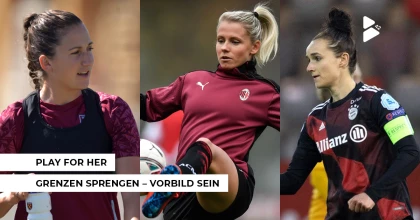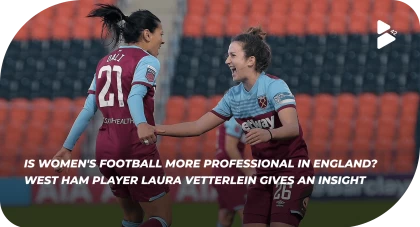One reason for the limited appeal of women's soccer is certainly the lack of meshing with men's soccer. Teams like FC Barcelona manage to let the men's celebrities radiate onto the women. There are joint team photos, media appointments, events, and a basic desire to let the women's teams share in the success of the men.
A simple, constructive and easy-to-implement suggestion: In England, it is common practice for players from the men's and women's teams to be present at autograph sessions. That would be a start. In the same way, the women could always be integrated into the clubs' respective marketing channels - whether social media, their own video channel or some press conference. So there's still a lot of room for improvement when it comes to dovetailing the men's and women's worlds.
Much more critical, however, is the fact that most of the well-known Bundesliga clubs criminally neglect or push aside women's soccer. A look at the Flyeralarm Women's Bundesliga: the percentage of teams represented in the league with a top-class and well-known men's division is 58 percent. In England, this percentage is 100 percent, and in France and Spain it is 75.
Major German soccer clubs like Borussia Dortmund and VfB Stuttgart, with hundreds of thousands of fans, many of them female, still do not have a women's division. At the same time, women's teams are also structurally disadvantaged and subordinated at the grassroots level. A current example is 1. FC Mönchengladbach.
The club's board recently decided not to register the 1st and 2nd women's teams and the U17 junior team for the 2020/2021 season. The reason: the first men's team has been promoted to the top division.
The affected players found out shortly before the registration deadline - if you believe them (which I do), there was no prior agreement. This may be an extreme example, but it is emblematic of the way women's soccer is handled in many German clubs.











